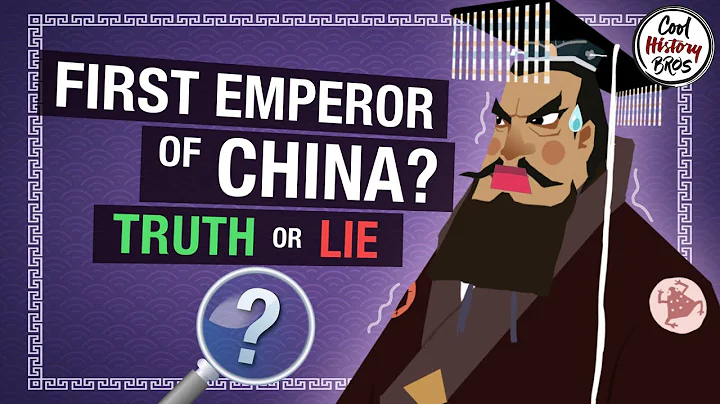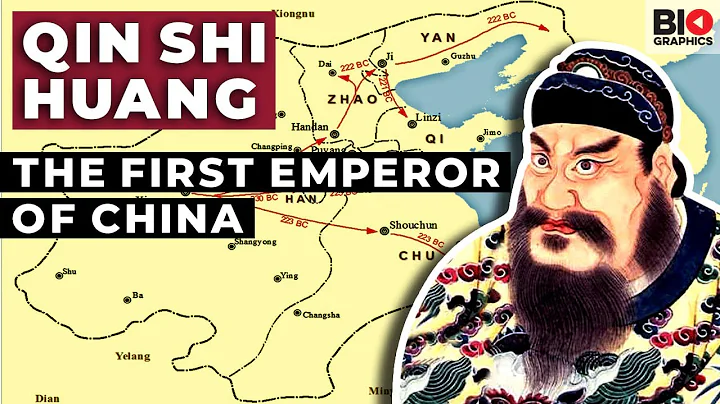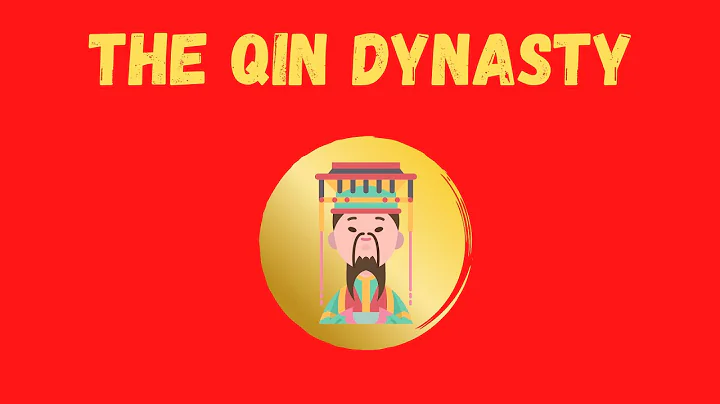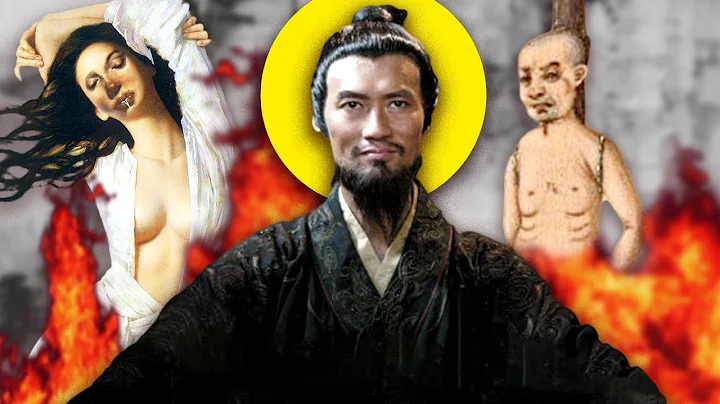In the first two articles Shang Yang entered the Qin Dynasty and Qin Xiaogong discussed politics, we learned together what Shang Yang thought a strong country looked like, and also understood why other countries' reforms failed. In other words, Qin Shang Yang answered all the doubts in Duke Xiao's heart.
The Spring and Autumn Period and the Warring States Period were an era when talents emerged in large numbers. Every famous person who wanted to show his ambition must have a long-term strategy for governing the country. As the saying goes: "If you don't have diamonds, you won't do porcelain work." Shang Yang was one of the famous celebrities in the Spring and Autumn Period and the Warring States Period. Since he decided to serve as an official in the Qin Kingdom, he must have a plan to strengthen Qin.
In this article, let’s take a look at what Shang Yang’s plan to strengthen Qin is? How can he reform to change the current situation of poverty and weakness in Qin? Next, let's take a look at the main program of " Shang Yang's Reform " - "Nine Treatises on the Governance of Qin"!

1. "Tian Lun" stipulates the laws on abandoned well fields, opening of ridges, and fields that can be bought and sold.
Land resources are the most basic resources of a country. Especially in ancient society, the cultivated area of the land is an important criterion for determining the strength of a country. No matter which country, as long as it involves land reform, it must expand the land area, curb land annexation, , and strive to ensure land for the tiller.
At that time, the land system of the Qin State still followed the well-field system inherited from the Zhou Dynasty. As the name suggests, the well-field system divides the land into tic-shaped shapes. The result is that there are too many paths between fields, which greatly wastes cultivated land. Obviously, the well-field system can no longer meet the needs of the country's rise.
Shang Yang organized people, re-measured the land, re-registered the population, liberated the serfs, re-conferred the land, so that everyone had his own land. At the same time, Shang Yang also stipulated that land could be bought and sold freely. Ancient society was vast and sparsely populated, which greatly promoted the recovery of the country's economy.
Therefore, the first thing Shang Yang had to solve was the land policy. This was the guarantee for a rich country and a strong military, and also the basis for the rise of Qin.

2. "On Taxation", abandoning the old tax system of unlimited tribute, and making farmers pay taxes according to acres, workers according to workshops, and merchants according to transactions.
The economic foundation determines the superstructure . The more funds a country has at its disposal, the more it can concentrate on doing major things. What does the so-called treasury replenishment rely on? That must be taxation, so tax policy is an important guarantee to support the operation of the national system.
It can be said that the current situation of the Qin State at that time did not have a systematic tax policy at all. The source of the country's annual tax revenue came from local tributes. However, there was no corresponding fixed amount for the amount of tributes. It was up to each fiefdom to measure how much to hand over. In this case, it is difficult for the country to have "food reserves" and it will be difficult for the country to shoulder its responsibilities in the event of a major war or natural or man-made disaster.
Therefore, Shang Yang proposed a new tax policy. The country unified taxation. Those who farmed paid taxes based on the acres of land they farmed, those who opened workshops paid taxes based on their output, and those who did business paid taxes based on their trade volume. This was a very advanced policy at the time. .
The promulgation and implementation of these policies filled Qin's treasury, and Qin slowly stood up from a state of poverty.

3. "On Peasants' Nobility", farmers who work hard to get rich and pay more grain taxes can obtain national titles.
Shang Yang's "Lun on Farmers" is truly the first of its kind in history. Since ancient times, farmers have always been at the bottom of society. "When prosperity is high, people suffer; when death falls, people suffer." This means that it is not easy for the poor. Farmers rely on farming. Wanting to be knighted is like a fantasy.
The titles in ancient society represented the upper class and social status. The reason why some large families have been passed down for hundreds or even thousands of years and prospered is precisely because they are the upper class. No matter who governs the country, they need them. support.
Now Shang Yang said that the title not only belongs to the upper class, but also to the people of the whole country. As long as farmers farm well and pay more grain to the country, they can get the title. The more grain they pay, the higher the title and the higher the social status. .
As soon as such a policy was promulgated, it greatly stimulated the enthusiasm of farmers to farm. The people of the entire Qin State were like a well-oiled machine, rumbling and turning. Everyone took care of their land carefully and looked forward to it. Good harvest and food. At this point, Qin finally began to slowly get rid of the situation of "frozen bones on the road" and also had the capital to fight the war.

4. "On Military Glory", whoever is beheaded in battle will be awarded a title based on the number of heads captured.
From ancient times to the present, the strength of the military has directly determined the country's international status. If you want to develop peacefully, you must have a strong enough protective force. If you don't have a strong military to protect you, then don't think about peace. If you fall behind, you will be beaten. This is an eternal truth. Therefore, throughout the dynasties, wise rulers must have continuously strengthened and strengthened their armies.
Since the Warring States Period the great war has taken shape, it is the general trend to ensure that the country has a strong army, so the entire Shang Yang Reform actually revolves around military merit. It is precisely because of the powerful military merit and treatment that the people are vying for the equivalent of soldiers. , the combat effectiveness of Qin's army will continue to grow stronger.
The reason why the Qin Dynasty lost less and won more in the later wars and achieved great success is directly related to the military merit incentive system promulgated by Shang Yang. Until Qin Shihuang unified the six kingdoms, Qin's army ranked first in and the Warring States Period in terms of both the number of troops and the combat effectiveness of the army.

Summary
The four most important factors that determine whether a country is strong are citizens, land, army, and taxes. This is the basis for the rise of Qin. Shang Yang is indeed a great master of state governance in history. The opening chapter of "Nine Treatises on the Governance of Qin" is to solve the most basic problems, and it is not a reform on the original basis, but a complete reconstruction. Every time I read it now, I feel filled with emotion and excitement. Endless!
Using copper as a mirror, you can straighten your clothes; using history as a mirror, you can know the ups and downs; using people as a mirror, you can understand gains and losses!
See you next time!
As soon as such a policy was promulgated, it greatly stimulated the enthusiasm of farmers to farm. The people of the entire Qin State were like a well-oiled machine, rumbling and turning. Everyone took care of their land carefully and looked forward to it. Good harvest and food. At this point, Qin finally began to slowly get rid of the situation of "frozen bones on the road" and also had the capital to fight the war.

4. "On Military Glory", whoever is beheaded in battle will be awarded a title based on the number of heads captured.
From ancient times to the present, the strength of the military has directly determined the country's international status. If you want to develop peacefully, you must have a strong enough protective force. If you don't have a strong military to protect you, then don't think about peace. If you fall behind, you will be beaten. This is an eternal truth. Therefore, throughout the dynasties, wise rulers must have continuously strengthened and strengthened their armies.
Since the Warring States Period the great war has taken shape, it is the general trend to ensure that the country has a strong army, so the entire Shang Yang Reform actually revolves around military merit. It is precisely because of the powerful military merit and treatment that the people are vying for the equivalent of soldiers. , the combat effectiveness of Qin's army will continue to grow stronger.
The reason why the Qin Dynasty lost less and won more in the later wars and achieved great success is directly related to the military merit incentive system promulgated by Shang Yang. Until Qin Shihuang unified the six kingdoms, Qin's army ranked first in and the Warring States Period in terms of both the number of troops and the combat effectiveness of the army.

Summary
The four most important factors that determine whether a country is strong are citizens, land, army, and taxes. This is the basis for the rise of Qin. Shang Yang is indeed a great master of state governance in history. The opening chapter of "Nine Treatises on the Governance of Qin" is to solve the most basic problems, and it is not a reform on the original basis, but a complete reconstruction. Every time I read it now, I feel filled with emotion and excitement. Endless!
Using copper as a mirror, you can straighten your clothes; using history as a mirror, you can know the ups and downs; using people as a mirror, you can understand gains and losses!
See you next time!





















